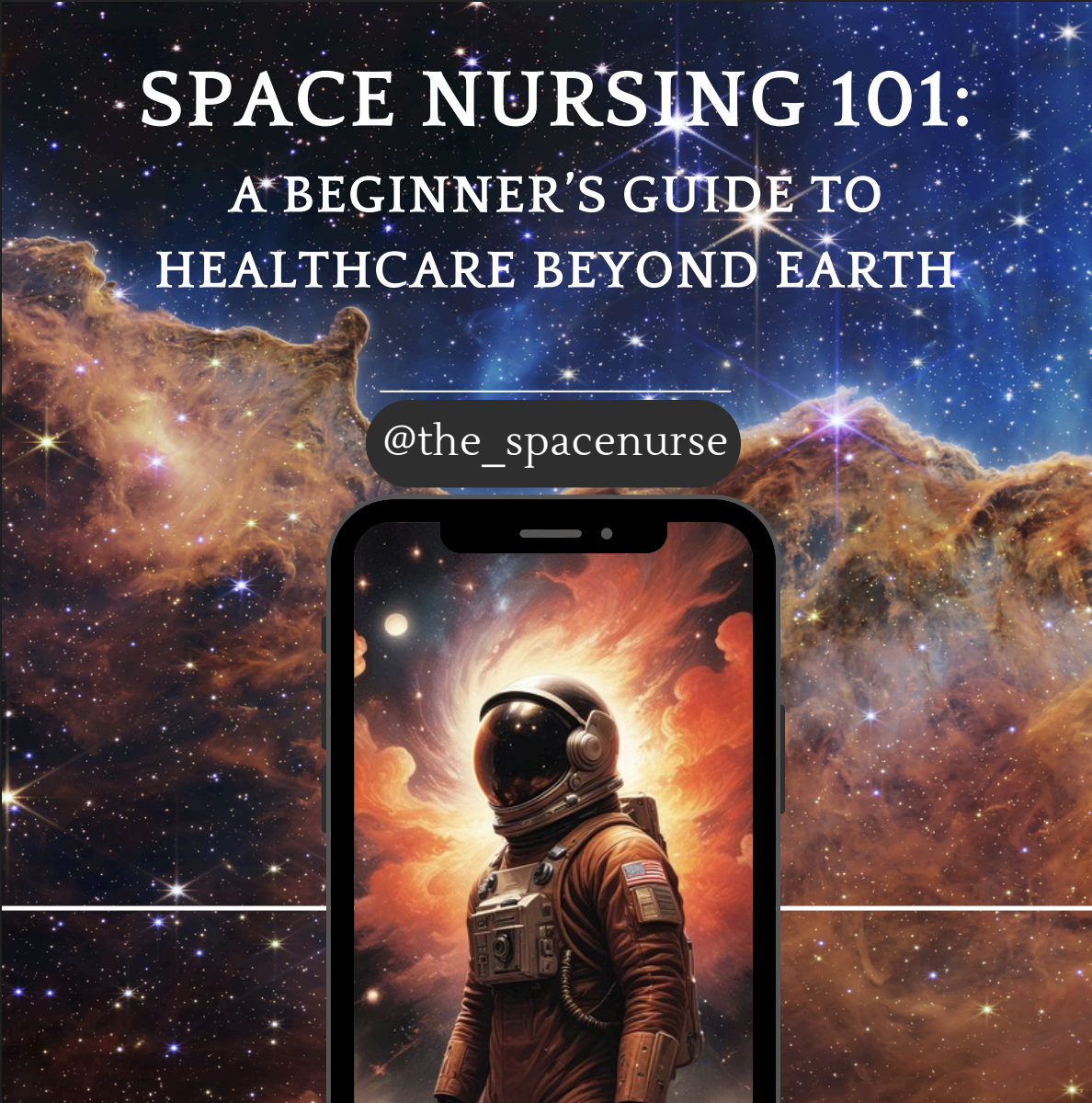The question everyone asks:
How do you wash your hair in space?
According to retired astronaut Karen Nyberg, who spent 166 days aboard the ISS, it’s equal parts patience and ingenuity. There are no showers, no running water, and no gravity to help rinse away soap. Instead, astronauts use about eight ounces of water from a foil pouch, applying it directly to the scalp with a straw-like nozzle. The water forms floating globules that drift away if you’re not careful. Meaning, you have to catch them midair and gently press them back into your hair.
Then, no-rinse shampoo is worked through with fingers or a comb. Towels are used sparingly (there’s no laundry in orbit), and dirty ones are sealed and discarded. Even then, Nyberg admitted her hair “never felt really clean.” After months in orbit, it naturally held the shape of a ponytail (gravity’s absence leaves hair with a kind of memory).
It’s a simple but powerful reminder that the things we take for granted on Earth, like washing our hair, become complicated when gravity disappears.
Background + Significance
Before we talk about hair washing, let’s zoom out for a second. Space medicine is the study of how the human body adapts (or doesn’t) to living beyond Earth. It’s an emerging field at the intersection of medicine, physiology, engineering, and psychology and it’s full of surprises.
On Earth, gravity constantly pulls everything down. Our blood, fluids, even the oil and moisture on our skin. But in space, astronauts experience microgravity, a near-weightless state that makes your body act as if it’s floating. Without that downward pull, fluids shift toward the head, muscles shrink, bones weaken, and skin and hair start acting differently.
Our bodies simply weren’t designed for this. So when humans venture beyond Earth’s atmosphere, researchers have to rethink everything we know about health, including dermatology and hygiene.
At the 2024 American Academy of Dermatology meeting, Dr. Christopher Bunick asked a simple but important question: Is dermatology ready for space? It’s not science fiction anymore. Astronauts are already reporting skin rashes, dryness, and irritation on the International SpaceStation (ISS). Studies have found that skin issues are the most common medical problem in space, with rashes occurring 25 times more often than on Earth.
Why? Because spacecraft air is cold, dry, and recycled. Humidity is low, skin barrier function weakens, and exposure to new things like biosensor adhesives or cleaning chemicals, lead to contact dermatitis. Even the skin’s structure changes. Astronauts show epidermal thinning and loss of elasticity during long missions, though these usually reverse after returning home.
Hair doesn’t escape the effects either. In microgravity, hair follicles may cycle differently, with some studies suggesting altered growth patterns. Mice in orbit, for example, experienced changes to their follicle timing. While we can’t yet say humans will lose their hair in space, it’s clear that even our follicles feel the weightlessness.

Why It Matters
So, why should nurses, dermatology nurse practitioners, and entrepreneurs care about what happens 250 miles above Earth?
Because space gives us a fast-forwarded view of human biology under stress. Microgravity speeds up changes that also happen during aging or immobility: skin thinning, impaired wound healing, and barrier breakdown. Researchers like Stefano Bacci and Daniele Bani have shown that when keratinocytes aren’t exposed to normal mechanical pressure, they divide more slowly and wounds close less efficiently.
That means studying astronauts can help us understand (and eventually prevent) the same issues in bedbound patients, the elderly, or those recovering from burns or surgery.
And for nurses? Space medicine reinforces how the environment shapes care. Whether it’s adjusting skincare routines for low-humidity hospitals or designing new wound dressings for long-duration spaceflight and bedsores, nurses are uniquely skilled at translating environmental science into human-centered practice.
3 Lessons From Space for Nurses and Skin Experts
If microgravity can change how we wash our hair, imagine how it might change the way we think about skin health altogether.
Ready to explore how you can build a career in aerospace medicine? Listen to Christine's full interview on The Melanin Initiative Podcast on YouTube, LinkedIn, or your favorite podcast app to hear her roadmap for nurses entering this emerging field.
Want to dive deeper into this research? Alliance of Cosmetic Nurse Practitioners™ members get exclusive access to an audio discussion of this article, including expanded commentary on the DNP project ideas, PhD research opportunities, and entrepreneurial strategies. Join the Alliance to access the full audio library and connect with NP founders translating research into practice and revenue.
About the Author
Christine Rincon, BSN, RN, CCRN is The Space Nurse™, a critical care nurse and PMHNP student committed to advancing nursing representation in aerospace medicine, a rapidly expanding field that has systematically excluded nursing expertise from mission design and crew health policy. With a background in trauma, critical care transport, and nursing education, Christine is passionate about creating career pathways for experienced nurses who feel intellectually undervalued in traditional healthcare and are ready to contribute their holistic expertise to space health, human factors research, and extreme environment medicine.
As a contributor to Mahogany Dermatology Nursing | Education | Research™, Christine brings a unique perspective on how environmental medicine, both on and off the planet, can advance equitable, human-centered care. She shares actionable insights grounded in clinical experience, aerospace medicine research, and a commitment to ensuring nurses have a foundational seat at the table in shaping the future of space health. Outside of writing, Christine advocates for nursing leadership in space agencies, commercial spaceflight companies, and research institutions, building the infrastructure that positions nurses as essential, not optional, for comprehensive crew care. Follow Christine at thespacenurse.com and download the free Space Nurse 101 Guide to explore career pathways into aerospace medicine.
Website: thespacenurse.com
Contact: hello@thespacenurse.com
Download: Space Nurse 101 Guide
© 2025 Christine Rincon. All rights reserved.